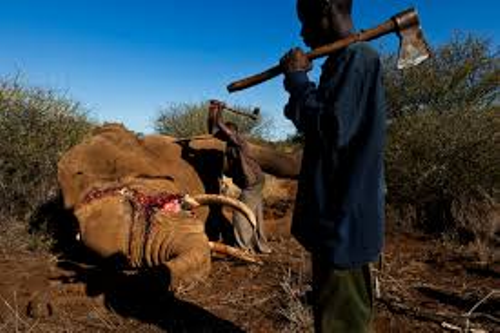He was speaking, August 17, 2016, during a programme organised by ERuDeF at the Lebialem Community Radio as part of celebrations marking the 2016 World Elephant Day.
Observed on the theme “Bringing the World Together to Help Elephants”, the ERuDeF ESD Coordinator beseeched communities to retreat from practices that threaten the existence of this giant wildlife species.
“Many communities around wildlife habitats have the inclination of burning down wildlife habitats and cutting down trees to create space for farmlands. This act is detrimental to the existence of this species,” he advised.
Mr. Ngueping said the Southwest Region is an important hotspot for African Elephant, but this large mammal is one of the greatest victims of anthropogenic activities.
“There are about 400 African Elephants in Southwest Cameroon spread across various protected areas/biodiversity hotspots including; Mount Cameroon National Park, Korup National Park, Banyang Mbo Wildlife Sanctuary, Takamanda National Park, and the Proposed Mak-Betchou Wildlife Sanctuary. These hotspots are surrounded by about 250,000 people, 80% of whom are peasant farmers. These farmers destroy elephant habitats, transforming them into agricultural farmlands” the ESD boss lamented.
On his part, an inhabitant of the Proposed Mak-Betchou Wildlife Sanctuary, Mr. Ebbe Bernard Fobeson, blamed this on ignorance on the part of communities on the importance of elephant conservation. He recommended that more awareness campaigns be carried out in communities adjacent to wildlife habitats on the importance of elephant conservation.
Mr. Ebbe also indicated the need for more alternative livelihood supports to be given to communities adjacent to African Elephant habitats and other wildlife species.
By Ngueping Samuel




